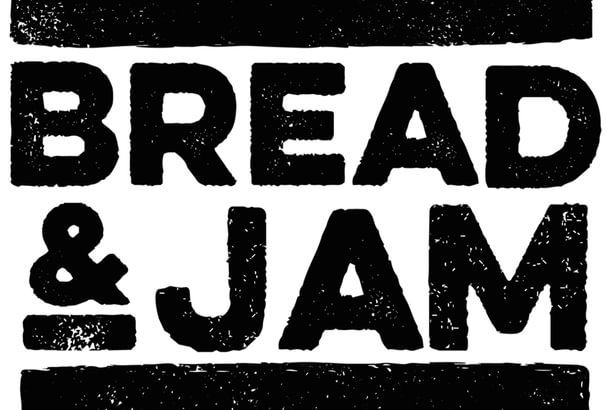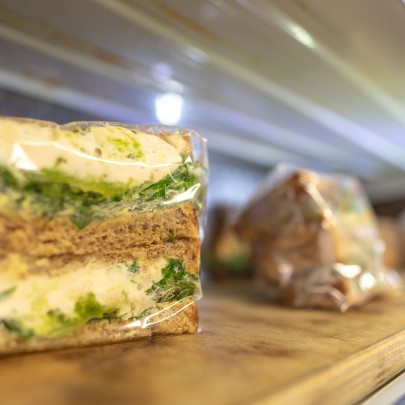April 17, 2024 Industry news
The foodservice industry uses a lot of jargon. Given that the industry encompasses a broad range of roles and processes, each with their specific vocabularies, jargon helps for clear communication within the what are often very fast-paced environments.
While jargon can certainly be helpful, it can be confusing for outsiders or those new to the industry. That is why our partners at Bread & Jam have compiled a jargon-busting foodservice dictionary, to help you make sense of some of the most frequently used words and phrases...
FOODSERVICE: A distribution channel that provides prepared food and beverages, often in restaurants, cafes, hotels, or other establishments, to cater to customers' dining needs in the consumer goods industry.
BRC ACCREDITATION: An independent food safety accreditation recognised by supermarkets and large organisations as proof that high food safety standards are in place and that a food company is safe to supply.
BUYER: A person responsible for purchasing goods at wholesalers, retailers or end users.
CONSOLIDATION CENTRE: A location designed to provide a number of suppliers a combined route into depots.
CONTRACT CATERER: A company that provides catering services to a business or organisation (its client) for a specific length of time. For example, in a school.
DDP (DELIVERY DUTY PAID): An Incoterm (see definition) term used for a price quoted with delivery duty paid by the supplier.
EDI (ELECTRONIC DATA INTERCHANGE): The computer-to-computer exchange of business documents in a standard electronic format between business partners.
FOB (FREE ON BOARD): An Incoterm (see definition) term that means the buyer takes delivery of goods being shipped to it by a supplier once the goods leave the supplier.
FORECAST: An estimation of the future quantity demanded of a product.
FULFILMENT: The process of delivering a product or service to a customer, including order processing, inventory management, picking and packing, shipping, and tracking.
GROSS MARGIN: The difference between revenue and cost of goods sold, divided by revenue, expressed as a percentage.
HORECA: This describes a broad range of potential clients including luxury hotels, fast food restaurants, and independent cafes (Hotel/Restaurant/Café).
INCOTERMS: International Commercial Terms are standard trading definitions governing the terms of International trade in goods.
INCUMBENT LINES: Products that are already listed by the wholesaler, retailer or end user.
MOQ (MINIMUM ORDER QUANTITY): The smallest amount of a product that a supplier or manufacturer is willing to produce or sell at a given time.
NEW LINE FORM (NLF): A document completed by a supplier to give the wholesaler, end-user or retailer all the details they need on a new item.
NOMINATED LINES: Products a wholesaler doesn't list but is requested by the end-user and is therefore purchased by the wholesaler.
NPD (NEW PRODUCT DEVELOPMENT): The process of creating and introducing new products into the market to meet consumer needs.
OFF INVOICE: Refers to additional charges, discounts, or promotional allowances that are not included on the invoice itself but are separately negotiated or deducted.
OFF TRADE: Refers to the distribution and sale of alcoholic beverages, such as beer and spirits, for consumption off-premises, typically in retail stores or supermarkets, in the consumer goods industry.
OMNICHANNEL: This refers to interconnected offering by a supplier across digital and physical (retailers and foodservice) channels.
ON TRADE: Refers to the distribution and sale of alcoholic beverages, such as beer and spirits, to establishments that serve them for immediate consumption on their premises, like restaurants, bars and hotels.
ORDER TO ORDER: Refers to a product not stocked in any location but would be ordered on receipt of customer order and delivered in via network - either direct or hubs.
OUT-OF-HOME (OOH): Refers to advertising or promotions targeting consumers while they are outside their homes, and it is increasingly used as a synonym for Foodservice.
OVERRIDERS: Refers to when suppliers pay large distributors a percentage of sales which increases the more they sell for you.
OWN LABEL: A product provided in the wholesaler's, retailer's or end user's packaging.
QSR (QUICK SERVE RESTAURANT): A restaurant with a fast and convenient service, offering quick, on-the-go meals and beverages.
REBATES: Refers to discounts offered to distributors or customers based on various conditions such as them purchasing certain quantities of a supplier's products within a specific timeframe.
RETRO: A retrospective discount, where the customer raises a purchase order, and the supplier raises an invoice at the full price, knowing from the outset that a Credit Note will be issued by the supplier at a later date to cover the discount offered.
RTM (ROUTE TO MARKET): The term used to identify how each supplier delivers into a wholesaler, retailer or end user.
SALSA ACCREDITATION: An independent food safety accreditation scheme focused on smaller food producers and suppliers. It is recognised by many but not all retailers and large organisations.
SUPPLY CHAIN: The network of businesses and organisations involved in the creation and delivery of a product, including suppliers, manufacturers, distributors, retailers and end users.
SKU (STOCK KEEPING UNIT): Refers to a supplier's product, where each variation (flavour or size) is a separate SKU.
WHOLESALE CASH AND CARRY: An operation in the wholesale sector where businesses purchase goods in large quantities and then sell them, either in bulk or in smaller quantities, to retailers, other businesses, or sometimes the end consumer. For example, Booker.

About Bread & Jam
GS1 UK partners, Bread & Jam, began in 2016 as a festival for food and drink brands to network. Bread & Jam has since grown into a vibrant community of the UK’s most exciting emerging food & drink brands. They are now the first port of call for anyone looking to launch a fast growth food & drink brand.
The company came about through the shared vision of two food founders, passionate about shaking up the way the food and drink industry works. Every year, 16,000 food and drink brands emerge into the UK market and yet, 90 per cent of them don’t make it past their first year of trading. Bread & Jam is hear to fix that.
There are many reasons for a food business to cease trading but the absence of opportunity, information and industry support should no longer one of them.



